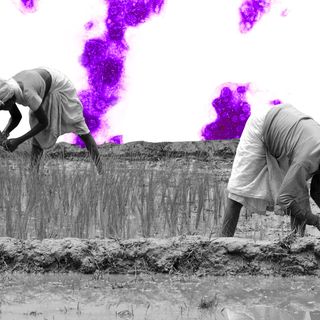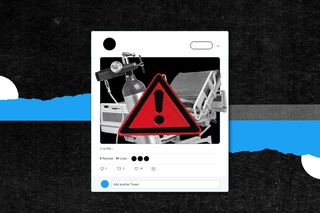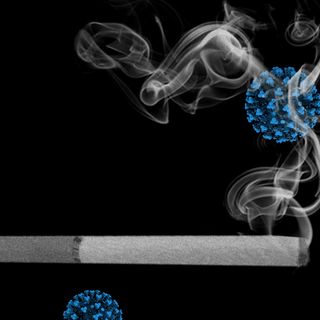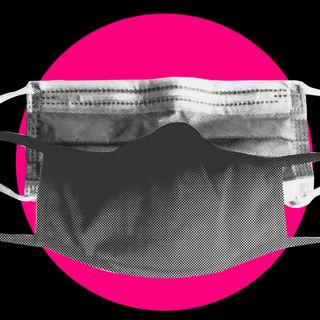
Why The Govt Is Targetting Social Media Posts About Oxygen, ICU Bed Shortages
The government claims such posts are “disrupting public order.”

The government on Sunday asked Twitter, Facebook, and Instagram to take down more than 100 posts referring to a shortage of supplies to treat Covid19 — such as oxygen, ICU beds, and medicines like Remdesivir — alleging such posts were spreading disinformation and communal disharmony, according to The Hindu. In a separate incident, the government asked Twitter last week to remove tweets critical of its Covid management; several users who were sharing Covid19 resources were reportedly asked to shut down their pages or stop using WhatsApp groups, both decisions which discourage usage of social media for Covid19 relief work.
The Indian internet presents a grim spectacle, as desperate pleas for Covid19 resources continue to flood social media feeds. Most carry links to Google documents, resource lists that compile contact numbers of oxygen suppliers and pharma reps, and available hospital beds. These Covid19 ‘toolkits’ have defined India’s response to the calamitous second wave, becoming veritable “triage centers,” Kim Lyons wrote in The Verge. But the government’s recent orders objecting to alleged misuse of social media does two things: it censors factual statements about India’s second wave and intimidates volunteers running Covid19 relief work.
The central government objected to posts relating to Covid19 and Kumbh Mela, many of which carried the hashtag ‘ModiMadeDisaster’ and/or called for the Prime Minister to resign. Medianama first reported the government had made removal requests under the Informational Technology Act, 2000, according to the Lumen database, a transparency initiative that tracks content-removal requests. Some of the posts, most of which were posted by official verified accounts of opposition party leaders, aired the following content: a comparison of Narendra Modi holding an election rally in Bengal with mass cremations; a tweet stating the healthcare system is “collapsing”; and an image from Kumbh Mela to illustrate that the ruling government underplayed the second Covid19 wave.
Uttar Pradesh Chief Minister Yogi Adityanathhas also claimed people are spreading ‘rumors’ about the state’s oxygen shortage on social media and warned of his intention to invoke the National Security Act to prosecute such posts. On the same day, private hospitals in Bareilly announced their oxygen supply would run out within three to four hours.
Related on The Swaddle:
Covid19 Social Media Groups Are Saving Lives. But For People Without Internet, the Situation Is Grim
On Saturday, the Solicitor General claimed that the government “has ensured that nobody in the country was left without oxygen.” The Delhi High Court reminded him about Jaipur Golden Hospital, where 20 people died on the previous day. The court has been actively listening to petitions by hospitals appealing for oxygen supply.
The Ministry of Electronics and Information Technology defended its order to take down contentious social media posts, saying, “It is necessary to take action against those users who are misusing social media during this grave humanitarian crisis for unethical purposes,” whilst noting the government encourages criticism. But arguably, none of the statements Twitter took down are factually wrong — India’s healthcare system is facing a monumental burden, as reported by international and national media; election rallies inviting people in huge numbers were conducted as recently as mid-April; and Kumbh Mela saw millions of attendees and a spike in Covid19 infection.
Indian social media is sending out Covid19 distress signals to the world. WhatsApp groups, Facebook communities, Instagram appeals, and Twitter resource lists are collating and bridging the healthcare gap. As a counterforce, a fake WhatsApp forward is curiously doing the rounds: warning those running groups or other resource lists they are violating the Disaster Management Act (DMA); but the DMA cannot censor any social media response, the Internet Freedom Foundation noted in a post. These posts that allegedly cause public disharmony are either asking for help or holding the government accountable.
People partaking in this relief work are arguably not doing this out of choice; these informal networks were compelled to swiftly emerge as a humanitarian response. While lauding their efforts, it is important to note why the need for their swift action arose in the first place.
While social media remains the most reliable and efficient way to help Covid19 patients and their families, commentators are sharing some legally sound practices to avoid government scrutiny. These include not sharing leads for injections and drugs like Remdesivir (distribution of which is administered by the state); sharing leads of those providing services in the black market. Ways to circumvent this include always personally verifying leads and mentioning a disclaimer noting one personally doesn’t take responsibility for these lists.
Social media networks using toolkits are novel ways to mobilize a pandemic audience, one that is united by a feeling of helplessness and frustration. These toolkits were “once shunned as an ‘international conspiracy,'” Niharika Sharma writes in Quartz, referring to the clampdown on protest toolkits during the farmers’ protest. These social media toolkits are now India’s Covid19 lifeline as “similar e-documents are proving to be one of the most efficient tools in providing essential support to Indian citizens struggling with a brutal second wave of Covid19.”
Digital toolkits are trusted ways across the globe for creating awareness and sourcing information on important social issues, such as the Covid19 crisis. One wonders how much more powerful these virtual networks would be if the government were on their side.
Saumya Kalia is an Associate Editor at The Swaddle. Her journalism and writing explore issues of social justice, digital sub-cultures, media ecosystem, literature, and memory as they cut across socio-cultural periods. You can reach her at @Saumya_Kalia.
Related


Journal Takes Down Study Suggesting Smoking Lowers Risk of Covid19
